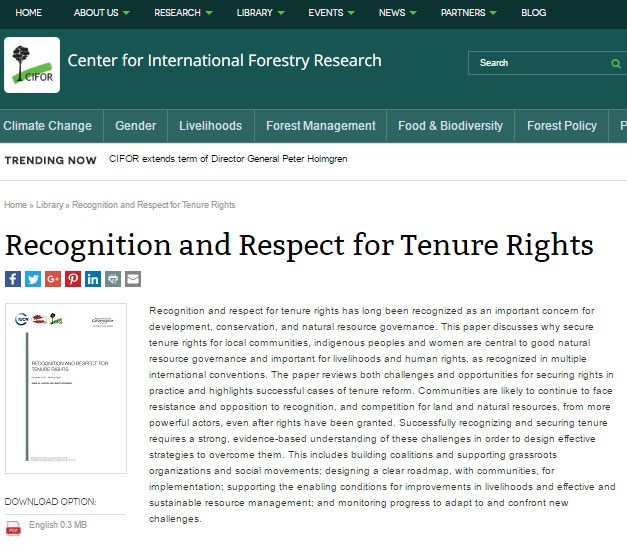Recognition and Respect for Tenure Rights
Recognition and respect for tenure rights has long been recognized as an important concern for development, conservation, and natural resource governance. This paper discusses why secure tenure rights for local communities, indigenous peoples and women are central to good natural resource governance and important for livelihoods and human rights, as recognized in multiple international conventions. The paper reviews both challenges and opportunities for securing rights in practice and highlights successful cases of tenure reform.


